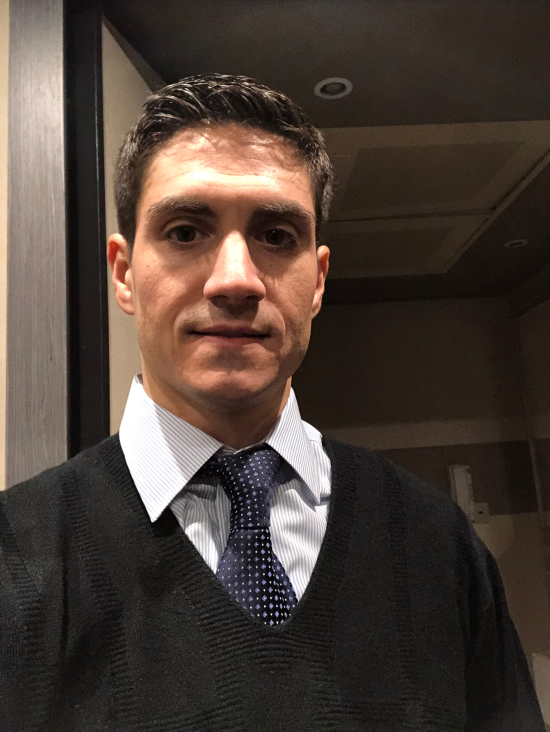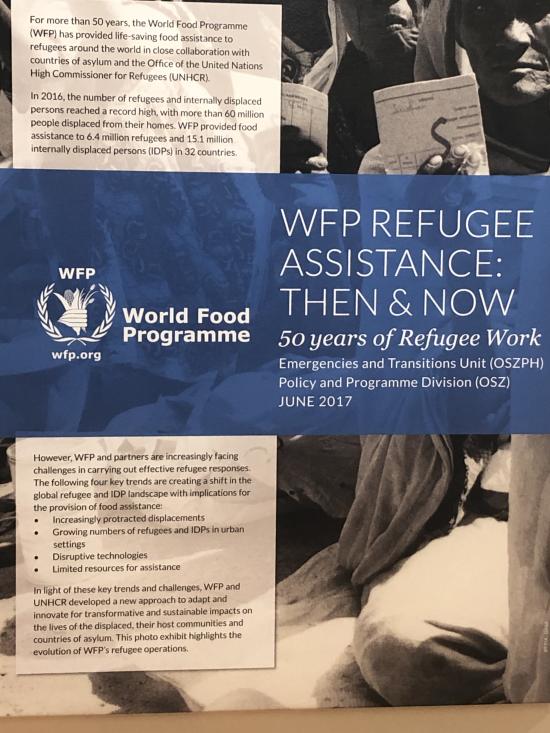The MIDS Data For Good Fellowship Recipient developed text-based similarity algorithms for the UN World Food Programme to support cash-based relief delivery.
Daniel Alvarez was selected as the Jack Larson “Data for Good” Fellowship recipient for Summer 2020. The fellowship supports Master’s of Information and Data Science (MIDS) students who desire to use data science to benefit society.
As a data analyst with the United Nations’ World Food Programme (WFP), Alvarez, who expects to graduate in December 2020, provided data insights to improve the efficacy of cash assistance programs targeting refugees and displaced communities impacted by humanitarian crises around the world. The WFP works to improve food security and nutrition among the most vulnerable and is currently active in over 80 countries around the world.
“I believe that data scientists have a societal responsibility to apply their skills for good and spread their knowledge to help others gain the most value from data,” Alvarez says, and in his work with the WFP, he’s done just that, developing algorithms to assist in recognizing program beneficiaries.
“I work in the delivery of cash-based relief to beneficiaries,” Alvarez explains, “which can take forms such as paper or electronic vouchers, cash-in-hand, money mobile payments or even bank debit card transfers.”
When beneficiaries are enrolled into a program, they must meet strict guidelines. The organization takes care that the identity of each person is indeed the intended recipient, and there is a careful screening process that may include methods such as document reviews, fingerprint or iris scans.
He developed text-based similarity algorithms or otherwise deduplication algorithms for the WFP, which make sure that the person registered for the benefits is the person who receives the benefits. “Identity recognition,” Alvarez says, “is vitally important to ensuring the right people receive the right benefits, and moreover, that there’s minimal duplication of benefits.”
Text-based algorithms are important because biometric information may not always be available, especially now, in the middle of the global Covid-19 pandemic. Additionally, the use of biometrics (fingerprints and iris scans) has been controversial in the broader humanitarian community. There are always issues of ethics and the collection and storage of personal identifiable information that permeate the work of a data analyst in the humanitarian sector.
Alvarez’s work has given analysts and Programme operatives in regional WFP offices located in under-developed countries insight to communicate more efficiently with NGOs and government institutions. This means assistance can be targeted, and there’s greater transparency and accountability to donors, which is no small feat.
Career Change
Before joining the WFP, Alvarez worked at the Federal Reserve and USAA in risk analytics. He moved into the nonprofit sector because of a desire to implement data science and risk analytics in an industry with real-world needs and challenges.
His work in the corporate world included demands from regulatory agencies and boards of directors, and where the data was most often sourced from internal, trusted sources. Not so in the humanitarian sector, where he says he’s had to “adapt to understanding the data generating process deeply by performing thorough data governance and lineage reviews.” The challenges are complex and may consist of an untold number of participants and data transfer mechanisms. Alvarez has worked with a dozen countries, and they all have unique needs and contexts: “I’ve learned to adapt my work to those needs and make a compelling case to do more with data.”
The MIDS experience, he says, has been beneficial in providing him with a thorough curriculum in foundations like data engineering, machine learning, and statistics. “Data science is a live discipline that continues to evolve rapidly,” he says. “I have to continue to be an active learner.”
Alvarez envisions himself in the nonprofit sector as long as it remains challenging and rewarding. “My hope is to be able to inculcate an appreciation for data science and how it can help to improve Programme activities in my current line of work and beyond in future pursuits. I see broad opportunities to make data science more practical and impactful in the humanitarian sector.”











